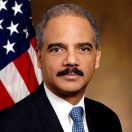
Ed. note: This is cross-posted on the U.S. Department of Justice's blog. See the original post here.
Sexual violence is a devastating and pervasive problem throughout the nation, and its shocking prevalence on tribal lands is especially troubling.
Particularly in recent years, the Department of Justice has made it a top priority to put an end to that unacceptable status quo – from our work to secure and pass important new protections for women in Indian Country, as part of last year’s reauthorization of the Violence Against Women Act, to the creation of an American Indian/Alaska Native Sexual Assault Nurse Examiner-Sexual Assault Response Team Initiative through the Department’s Office for Victims of Crime.
Bringing together diverse federal offices, as well as tribal nations and organizations, this Initiative’s critical mission is to strengthen the federal response to sexual violence in tribal nations. On Friday, I had the privilege of meeting with the Initiative’s Coordination Committee to discuss ways to take this work to a new level – and to receive the Committee’s formal report and concrete recommendations on improving federal agency response to sexual violence in tribal nations.
Every member of the Committee has done a remarkable job in capturing the challenges that far too many Native women face – and devising specific ways to overcome them. In their report, and in last week’s meeting, they detailed possible strategies for coordinating across federal offices and collaborating at the local level. They shared ideas for recruiting, rewarding, and supporting the federal employees who are performing this difficult work. And they spoke about the need to break the culture of shame that prevents far too many victims from coming forward and seeking the help that they need and deserve.
My pledge to these dedicated leaders was that their report, and the insights they offered, will not merely go on a shelf – they will provide a solid basis for the Justice Department to take robust action. In the days ahead, they will guide our efforts to take practical steps to implement – and to institutionalize – the changes we need to gain the trust of survivors, to transform attitudes surrounding these heinous crimes, and to strengthen existing tribal values that women must be respected. And they will inform our broad-based efforts to keep supporting and building upon the exemplary work that law enforcement leaders, victim advocates, and tribal authorities across the country are doing every day to help us turn the tide.
Like my colleagues throughout the Justice Department, I feel a tremendous sense of urgency on this issue. So, as we move forward with this critical work, the Department will continue to look to leaders like our Coordination Committee members – and those who serve on the front lines of this struggle – to drive our daily efforts. We will keep striving to bolster the enduring trust relationship between the United States and sovereign tribes. And we will remain committed to using every tool at our disposal to prevent sexual assault and help all victims get access to the assistance and support they need.
Eric Holder is the Attorney General of the United States.


